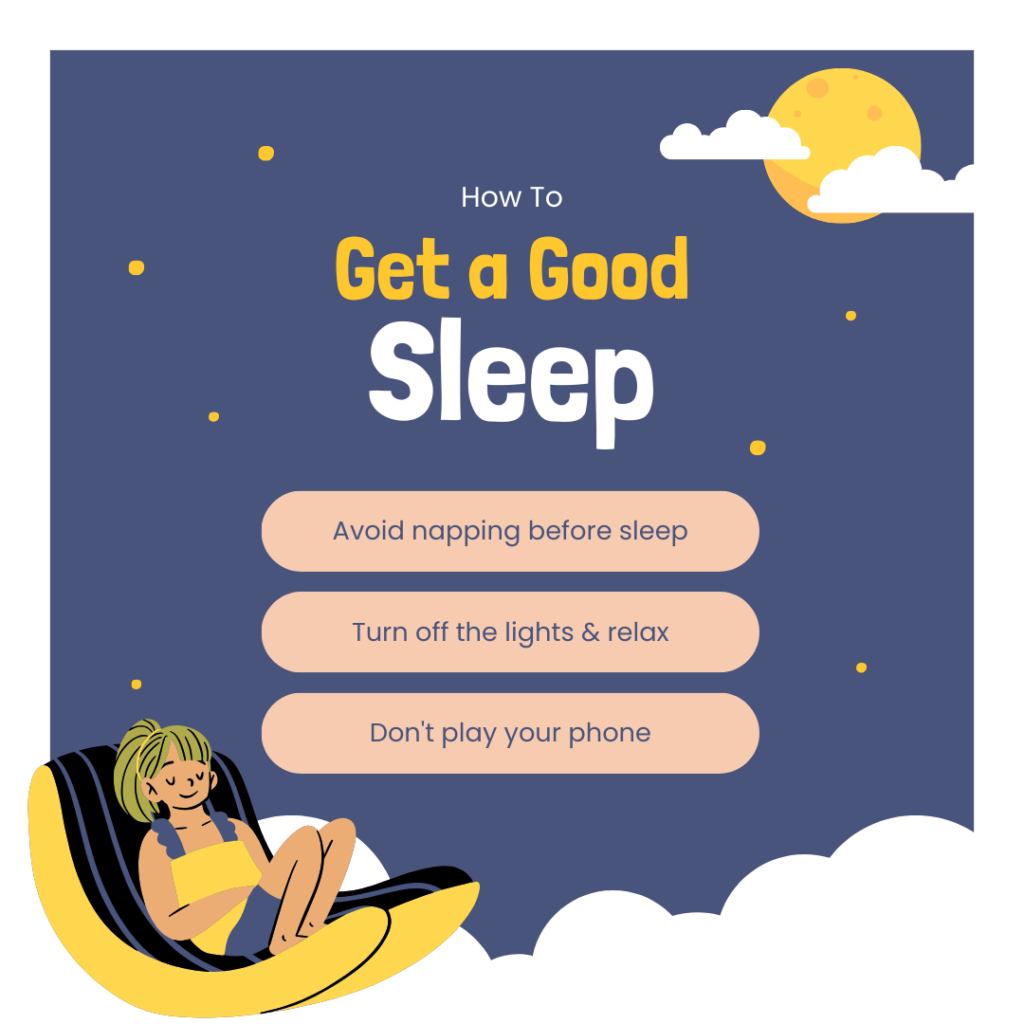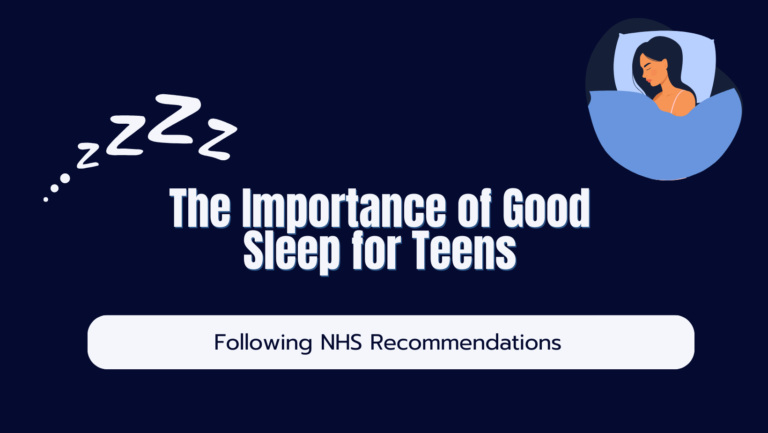Introduction
Teenagers live in a fast-paced world filled with academic pressures, extracurricular activities, and social engagements. Amidst this hustle and bustle, one essential aspect often gets overlooked: good sleep. A good night’s sleep is crucial for the physical and mental development of teenagers. In this article, we will explore the significance of good sleep for teens and delve into the recommendations provided by the National Health Service (NHS) in the UK.
The Importance of Good Sleep for Teens
- Physical Health:
Teens experience significant growth during adolescence, and sleep plays a vital role in this process. While sleeping, the body releases growth hormone, which is essential for bone and muscle development.
Additionally, proper sleep supports the immune system, helping teens ward off illnesses and infections more effectively. Without sufficient sleep, teens are more susceptible to illnesses, leading to missed school days and decreased overall well-being.
- Mental Health:
Adolescence can be a challenging time emotionally. Good sleep is essential for maintaining mental health. A lack of sleep can lead to increased stress, anxiety, and depression in teenagers. It impairs their ability to cope with emotional challenges and can even contribute to mood disorders.
On the other hand, well-rested teens are better equipped to manage their emotions, make rational decisions, and maintain a positive outlook on life.
- Academic Performance:
Teens who consistently get a good night’s sleep perform better academically. Sleep is essential for consolidating memory and improving cognitive functions such as problem-solving, decision-making, and concentration.
When teenagers are well-rested, they are more alert in class and can absorb and retain information more effectively, leading to improved grades and overall academic success.
- Safety:
Lack of sleep can have serious consequences for safety, especially for teen drivers. Drowsy driving is a significant risk factor for accidents. Teens who do not get enough sleep are more likely to experience impaired reaction times and poor judgment, putting themselves and others at risk.
NHS Recommendations for Healthy Night Sleep
The National Health Service (NHS) in the UK recognizes the importance of good sleep for teenagers and has provided specific recommendations to help them achieve a healthy night’s sleep:
- Consistent Sleep Schedule:
- Go to bed and wake up at the same time every day, even on weekends. This helps regulate your body’s internal clock.
- Create a Relaxing Bedtime Routine:
- Develop a calming pre-sleep routine to signal to your body that it’s time to wind down. This can include activities like reading a book, taking a warm bath, or practicing relaxation techniques.
- Limit Screen Time:
- Avoid screens (phones, tablets, computers, and TVs) at least an hour before bedtime. The blue light emitted by screens can disrupt your body’s production of melatonin, a hormone that regulates sleep.
- Watch Your Diet:
- Avoid heavy, rich, or spicy foods close to bedtime. These can cause discomfort and disrupt your sleep. Opt for a light snack if you’re hungry.
- Create a Comfortable Sleep Environment:
- Ensure your bedroom is quiet, dark, and at a comfortable temperature. Invest in a comfortable mattress and pillows.
- Exercise Regularly:
- Engage in regular physical activity, but avoid vigorous exercise close to bedtime. Exercise can promote better sleep, but doing it too late in the day can have the opposite effect.
- Limit Caffeine and Nicotine:
- Avoid caffeine and nicotine, found in coffee, tea, and some sodas, especially in the hours leading up to bedtime.
- Manage Stress:
- Practice stress-reduction techniques, such as meditation or deep breathing exercises, to help calm your mind before sleep.

Conclusion
Good sleep is a fundamental pillar of a teenager’s health and well-being. It impacts their physical growth, mental health, academic performance, and overall safety. The recommendations provided by the NHS serve as a valuable guide for teens to establish healthy sleep habits and reap the numerous benefits of a restful night’s sleep. By prioritizing their sleep, teenagers can navigate the challenges of adolescence with greate






